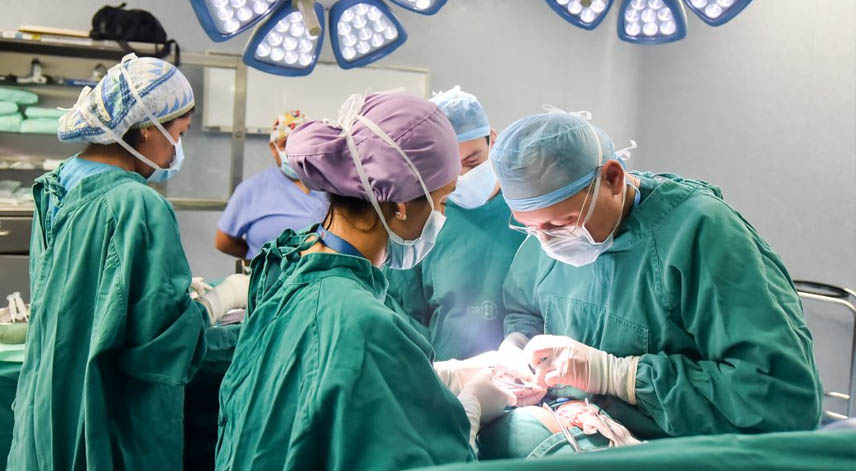There are several reasons to learn a second language, including traveling, relocating, or having a genuine interest in other cultures. In some cases, learning a second language can be an advantage in getting better job or internship opportunities.
Learning medical Spanish phrases and terminologies is essential for interns completing pre-med programs in Peru and any medical role. Here are some basics to help you communicate better with patients, your mentor, and the rest of the Spanish-speaking population.
Spanish Grammatical Structure
Before proceeding with Spanish medical terms, it’s useful for pre-med interns and other professionals to learn how a sentence is structured in Spanish.
Word order is important in all languages, as altering the structure can sometimes give a sentence an entirely different meaning.
Next to Chinese Mandarin, Spanish is the world’s second most commonly spoken language. Worldwide, there are over 450 million native speakers, more than the estimated 360 million native speakers of the English language. Additionally, some 75 million individuals list Spanish as a second language.
Generally, English and Spanish follow the subject-verb-object or “SVO” scheme.
For instance:
- I am a doctor = Yo soy medico
However, you don’t always need to add a subject in some Spanish sentences. Conjugated verbs can be quite common if they agree with the subject.
Thus, the sentence above can be shortened to Soy medico.
In the same manner, you can say:
- We are doctors = Somos doctores
- They are doctors = Ellos doctores
Sometimes, you can put the verb before the subject or insert pronouns before the verb. As such, the Spanish grammatical structure is flexible in certain cases. However, a good rule of thumb is to stick with the S-V-O arrangement.
When practicing Spanish, spend time with friends or acquaintances who speak the language. This isn’t hard to do if you live in the United States, where over 41 million people consider it their second language.
That aside, you can now build your knowledge of the basic Spanish phrases for medicine and clinicians.
Common Spanish Medical Terminologies
Knowing basic Spanish medical terms can help you understand your patients better and deliver much-needed assistance. Peru only had 90,094 active physicians as of 2020 to cater to over 30 million residents, meaning efficient service is paramount to everyone.
Medical People and Objects
- Doctor = el doctor / la doctora
- Nurse = el enfermero / la enfermera
- Hospital = el hospital
- Infection = la infección
- Injection needle = aguja de inyección
- Stethoscope = estetoscopio
- Thermometer = termómetro
- Syrup = jarabe
- Pastilla / pastillas = pill / pills
- Prescription = receta
- Mask/ Face mask = mascarilla
- Syringe = jeringuilla
- Blood = la sangre
- Medicine = la medicina
Medical Procedures and Rooms
- Hospitalization = hospitalización
- Emergency room = la sala de emergencia
- Surgery = la cirugía
- Radiography=radiografía
Medical Symptoms and Illnesses
- Allergy = la alergia
- Asthma = el asma
- Coughing = la tos
- Dizziness= los mareos
- Fracture = fractura
- Fever = la fiebre
- Flu= la gripe
- Headache= el dolor cabeza
- High blood pressure= la tensión alta
- Infection = la infección
- Injury= la herida, la lesión
- Pain = el dolor
When to Use "La" or "El"
Like French, all Spanish nouns have gender, which dictates when to use “el” or “la.” El is used for masculine nouns, while la is used for feminine nouns. The only exception is when a feminine noun starts with an a or ha sound. Such is the case for agua (water), a feminine noun, yet it is called “el agua” and not “la agua.”
Body Parts in Spanish
Learning the Spanish terms for the body parts is important to locate the pain and better understand patients’ complaints. Below are some English body parts and their Spanish translations.
- The head = la cabeza
- The eye = el ojo
- The stomach= el estómago
- Arm / arms = brazo / los brazos
- Knees = la rodilla
- Leg / legs = pierna/ las piernas
- Foot / feet = el pie/ los pies
- Chest = pecho
- The back = la espalda
Common Spanish Medical Phrases
There’s no room for misunderstanding in the medical sector, as it can have dangerous consequences. For instance, a non-Spanish healthcare worker may not realize the urgency of a patient’s condition because of invisible physical marks, delaying the delivery of life-saving procedures.
When speaking with a patient, you might need to ask the following questions:
- ¿Cuál es tu nombre? = What’s your name?
- Me llamo = My name is …
- ¿Tiene dolor? = Do you have pain?
- ¿Dónde le duele? = Where does it hurt?
- ¿Qué medicinas toma? = Which medicines are you taking?
- ¿Que tipo de síntomas tiene? = What kind of symptoms do you have?
A patient might answer with the following statements:
- Me siento mal = I feel unwell.
- No me siento bien= I’m feeling sick. Or, estoy enfermo = I’m sick.
- Me siento débil = I feel weak.
- He tenido un acidente = I’ve had an accident.
When expressing pain, patients will start with the word Me duele followed by the body part. For instance:
- Me duele el ojo (eyes) / la espalda (back) / pecho (chest), etc.
Remember that Peruvian Spanish terminology is the same as in every country that speaks the language, including Bolivia, Chile, Cuba, Mexico, and Puerto Rico, to name a few.
Final Thoughts
Learning Spanish for healthcare in Peru is vital in establishing clear communication with your mentors, colleagues, and the rest of the population. Basic knowledge of Spanish medical terms helps an intern express themselves confidently.
More importantly, it helps you write and speak a language people understand, making medical-related tasks like patient management, record-keeping, and service delivery seamless.




